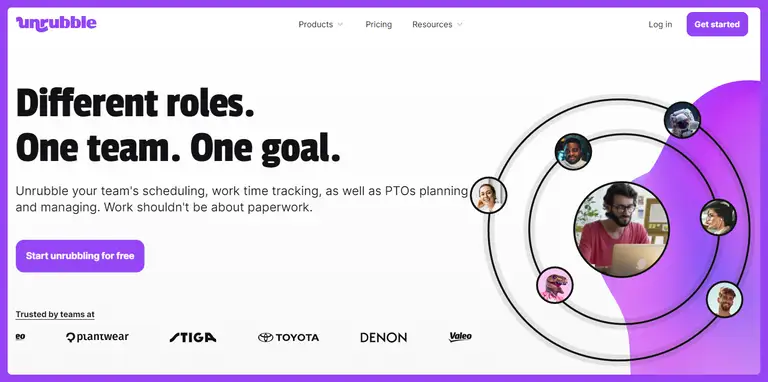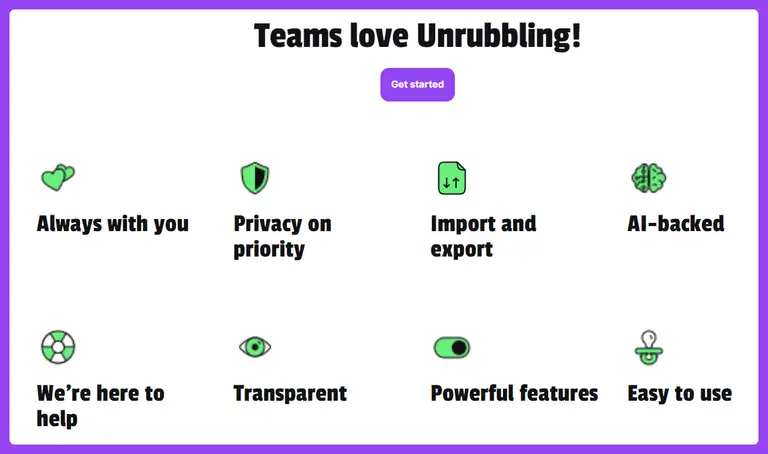Imagine turning every hour of overtime work into quality time for yourself.
Welcome to the world of comp time.
It's the secret of work-life balance, where overtime hours can transform into sweet moments of paid freedom.
In this ultimate guide to compensatory time, we'll show you everything behind this phenomenon, whether you’re managing people or working for a company.
What is comp time? Compensatory time definition
Compensatory time, often abbreviated as "comp time," is a workplace policy or arrangement. It allows employees to receive time off from work as compensation for when they work overtime beyond their regular schedule.
Compensatory time is typically offered as time off in lieu of overtime pay period. It's a way for employers to provide flexibility to employees while still adhering to overtime labor laws and regulations.
Comp time - key aspects

Here are some key points you should know about compensatory time:
Accrual
Employees accumulate comp time hours based on the number of extra hours they work beyond their regular schedule. Typically, there is an agreement in place between the employer and the employee regarding how these hours are accrued and tracked.
Time off
When an employee requests to use their comp time, they are granted time off in the future they'll get paid for, usually at a time agreed upon by both the employee and the employer. The time off can be for various reasons, such as vacation, personal time, or other personal needs.
Limits
Labor laws and company policies often set limits on the maximum amount of comp time an employee can accrue or carry over from one year to the next. When these limits are reached, employees may be required to take time off or receive overtime pay for additional hours worked.
Eligibility
Not all employees are eligible for comp time. It may depend on factors such as job classification, employment contract, or collective bargaining agreements.
Legal requirements
Compensatory time is subject to labor laws and regulations, which can vary by country and state. Employers must ensure that their comp time policies comply with these laws and that employees are aware of their rights and options.
Usefulness
Comp time can be beneficial for both employers and employees. It allows employees to balance work and personal life by offering paid time off when they need it. Employers can benefit by potentially reducing overtime work costs and improving employee morale.
It's important for both employers and employees to understand their rights and responsibilities regarding compensatory time, as it can vary widely depending on the jurisdiction and the specific employment situation.
If you have questions or concerns about comp time, it's advisable to consult with your HR department or legal counsel to ensure compliance with relevant labor laws and regulations.
Can YOU earn compensatory time?
Eligibility for compensatory time depends on several factors.
Here are some general guidelines to help you understand who may be eligible:
Fair Labor Standards Act (FLSA) exemption status
In the United States, the Fair Labor Standards Act (FLSA) sets rules for overtime pay and comp time eligibility. Employees who are classified as "exempt" under FLSA (such as certain salaried employees) are generally not eligible for comp time because they are not entitled to overtime pay. "Non-exempt" employees, who are eligible for overtime pay, may be eligible for comp time.
Non-exempt employees
Non-exempt employees, as defined by the FLSA, are typically eligible for comp time if they work more than the maximum number of hours established by labor laws (usually 40 hours per workweek in the U.S.).
When non-exempt employees work beyond these hours, they are generally entitled to overtime pay or, in some cases, comp time at a rate of 1.5 times their regular hourly wage for each overtime hour worked.
Company policies
Employers have the discretion to establish their own comp time policies, but these policies must comply with applicable labor laws. Some companies may extend comp time benefits to certain exempt employees or have specific criteria for eligibility.
Collective bargaining agreements
In unionized workplaces, eligibility for comp time may be negotiated through collective bargaining agreements. These agreements can vary widely and may provide different rules for different groups of employees.
State and local laws
Some states and local jurisdictions have their own labor laws that may impact eligibility for comp time. These laws can provide additional protections or restrictions beyond federal regulations.
Job classification
In some cases, eligibility for comp time may be tied to an employee's job classification or duties. For example, emergency responders or public safety employees may have special comp time rules due to the nature of their work.
What to use instead of comp time in the private sector? Flex time & PTO
In the private sector, instead of using comp time, employers often offer alternatives such as flexible time or personal time off (PTO) to provide employees with options for balancing their work and personal lives.
These alternatives can help employees manage their schedules and maintain a healthy work-life balance:
Flexible time
Flexible time, also known as flextime, allows employees to have more control over when they start and end their workday. Within certain limits set by the employer, employees can adjust their work hours to better accommodate personal commitments or preferences.
For example, an employee might choose to start work earlier in the morning and leave earlier in the afternoon to attend personal appointments or family obligations.
PTO
Paid time off is a bank of hours or days that employees can use for various reasons, including vacation, illness, or personal appointments. PTO combines traditional concepts of vacation days, sick leave, and other types of paid time off into a single, flexible pool. Employees can typically request PTO in advance or use it for unexpected situations.
Both flexible time and PTO provide employees with greater autonomy and control over their schedules, which can contribute to improved work-life balance. These options are often more adaptable and easier to manage than traditional comp time, especially in a dynamic and fast-paced private sector environment.
How to track and use comp time or overtime?

Unrubble, an automatic time tracking tool that streamlines the process, can help you. Here are some of the ways we can assist you.
Automatic time tracking
Unrubble offers automatic time tracking using cutting-edge face recognition and anti-spoofing detection AI. This means that employees' work hours, including overtime hours, are tracked seamlessly without manual input.
Tracking overtime hours
Unrubble can accurately track overtime hours worked by nonexempt employees. When employees work beyond their regular hours, the system can automatically identify these overtime hours and record them.
Comp time management
If your company offers comp time as an alternative to overtime pay, Unrubble can help in managing comp time accrual and usage. The system can keep a record of comp time hours accrued by eligible employees and allow them to use these hours for paid time off as needed.
Real-time reporting
Unrubble provides automated, real-time reporting, which includes information about breaks, overtime, and other time-related data. This feature ensures that you always have up-to-date and accurate information to manage comp time and overtime effectively.
What else?
- Customization: Unrubble is adaptable and can be tailored to match your company's specific needs and policies. This includes setting comp time rules and limits according to your company's guidelines.
- Integration: Unrubble can integrate seamlessly into your existing workflow. This includes payroll platforms, making it easier to manage compensation, including overtime pay or comp time, in one unified system.
- Employee self-service: Unrubble offers an employee self-service app, allowing employees to view their own comp time accrual, request time off, and monitor their overtime rate, which can help reduce administrative burdens.

When you use Unrubble, you can simplify the process of tracking and managing comp time and overtime pay easily. Get ready for accuracy, compliance with labor regulations, and a streamlined experience for both employers and employees. Try Unrubble today.
Final thoughts
In the world of work, comp time emerges as a valuable asset that offers flexibility and balance.
It's a tool that transforms overtime efforts into moments of paid freedom, contributing to a healthier work-life balance.
So whether you opt for comp time or explore alternatives like flexible schedules, remember that time is a currency of life.
And to make your life even easier, let Unrubble help you manage time in a way you've never even dreamed of.





